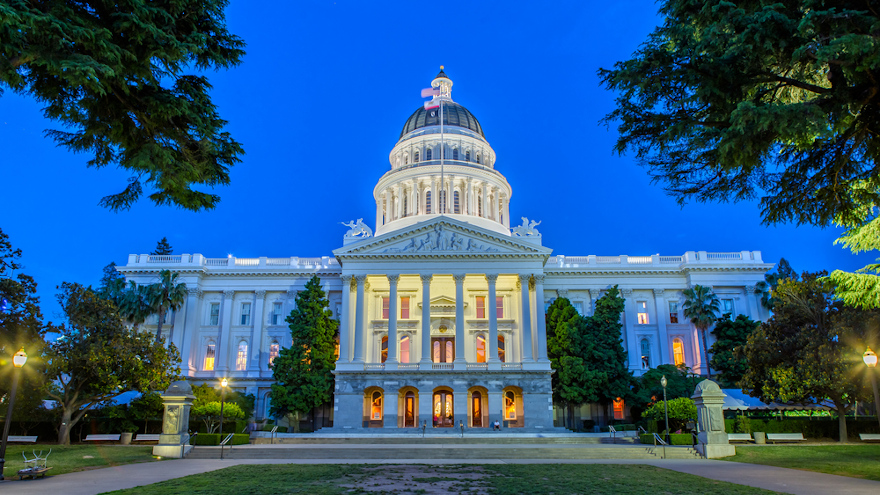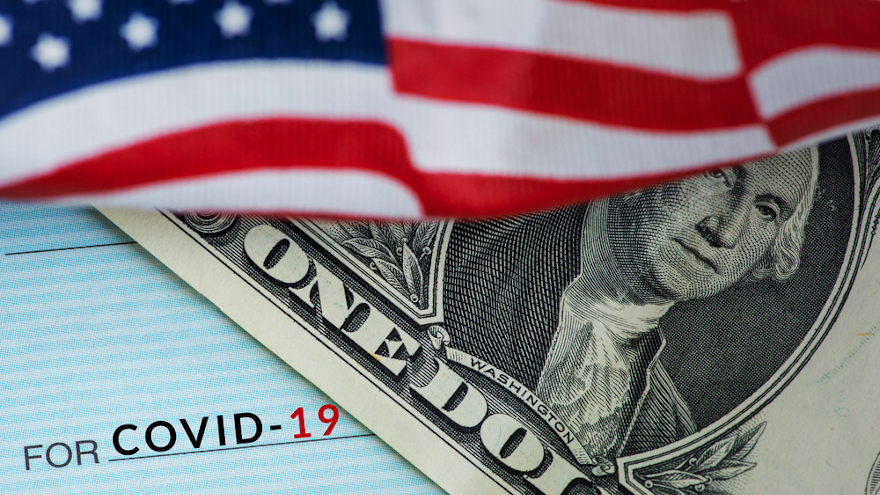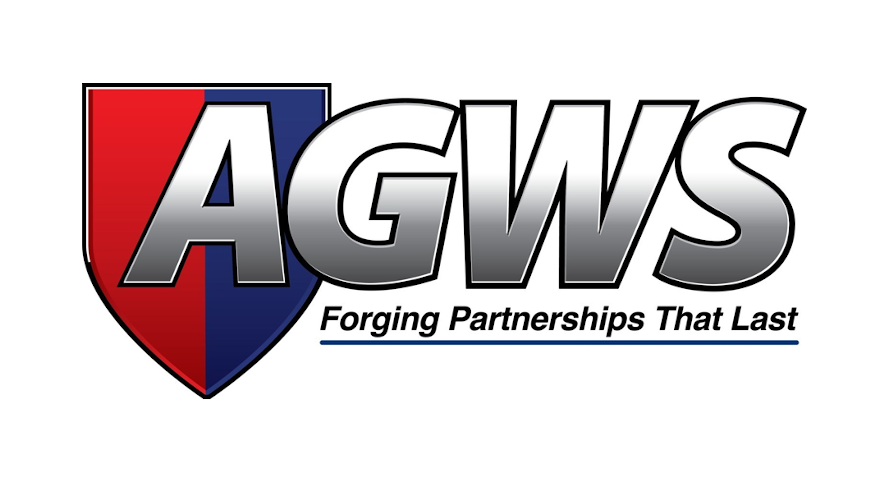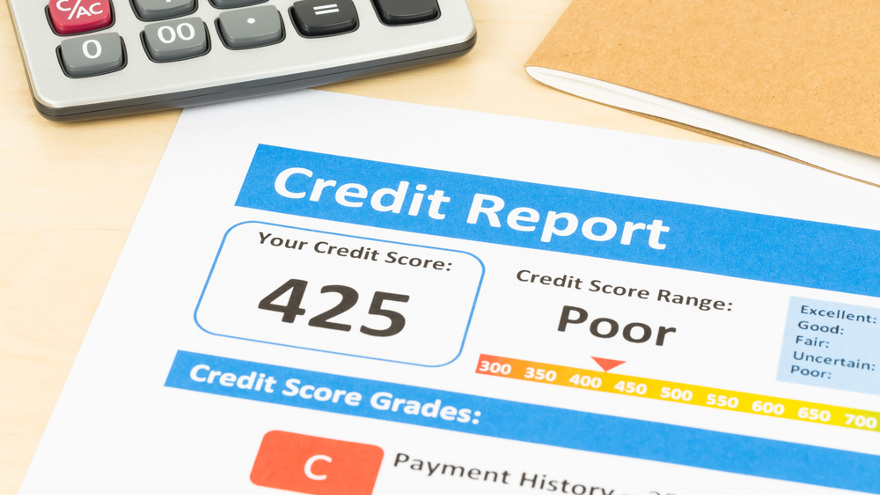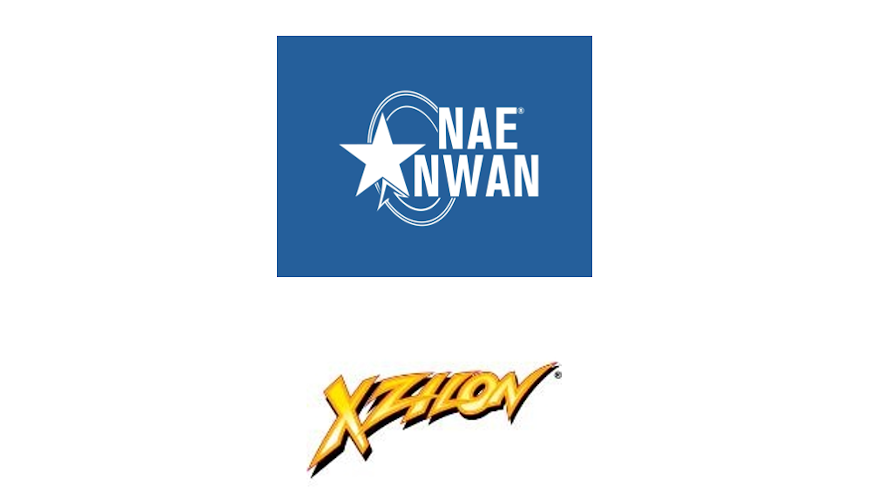Resolvion recently conducted an email survey of auto-finance provider inquiring about repossession activity once the coronavirus pandemic abates and recovery efforts intensify.
One of the telling findings from the survey uncovered the depth of concern that finance companies have about the capacity for the repossession industry to handle the volume of assignments that could be on the horizon.
While auto defaults currently are trending lower, more than 100 million consumer-credit accounts are in some form of modification program.
Here are some of the highlights from Resolvion’s survey as the complete results can be downloaded from the company’s website.
What is your institution type?
Bank – 13.51%
Captive – 2.70%
Independent Finance Company – 43.24%
Credit Union – 35.14%
Other – 5.41%
Is your institution’s auto loan portfolio larger than $10 billion in outstandings?
Yes – 8.33%
No – 91.67%
Check the following types of repossession orders your institution is currently issuing?
Involuntary Repossession – 66.22%
Voluntary Repossession – 90.54%
Impound Repossession – 74.32%
None – 5.41%
If your institution is currently issuing involuntary repossession orders, are you doing so on the following portfolios?
Pre-Charge-Off – 88.64%
Post-Charge-Off – 75%
If your institution is not currently issuing involuntary repossession orders, when do you expect to resume doing so?
June – 29.79%
July – 31.91%
August – 4.26%
Unknown – 34.04%
Do you have concerns that there may not be enough industry capacity to handle the demand for repossession services once COVID-19-related moratoriums are lifted?
Yes – 36.49%
No – 63.51%
Perhaps again reflecting how COVID-19 is turning data topsy-turvy, S&P Dow Jones Indices and Experian reported the auto-finance default rate in May came in at the lowest rate in 10 years.
According to the latest update of the S&P/Experian Consumer Credit Default Indices, the auto default rate dropped 10 basis points in May to land at 0.56%. The rate now has declined each month so far this year and now stands roughly half of what it was back in November and December when it was 1.02%.
The default reading coincides with TransUnion also reporting that more than 100 million consumer-credit accounts currently are in some kind of modification program because of the coronavirus pandemic. Those accounts include not only auto financing, but mortgages and credit cards, too.
Meanwhile, the composite rate, which represents a comprehensive measure of changes in consumer credit defaults also came in lower in May, dropping 12 basis points to settle at 0.78%.
Also dropping significantly, analysts noted the first mortgage default rate fell 14 basis points in May to 0.52%.
However, moving in the opposite direction, S&P and Experian pointed out the bank card default rate rose 17 basis points to 4.40%.
Looking at the data from the five largest U.S. metropolitan areas, analysts found that May default rates dipped month-over-month.
S&P and Experian discovered Chicago posted the largest decrease, down 13 basis points to 0.93%. New York was just off that pace, dropping 12 basis points to 0.83%, while Miami was right behind with an 11 basis-point decline to settle at 1.43%.
Dallas’ reading moved 9 basis points lower to 0.79%, while Los Angeles fell four basis points to 0.70%.
Jointly developed by S&P Indices and Experian, analysts noted the S&P/Experian Consumer Credit Default Indices are published monthly with the intent to accurately track the default experience of consumer balances in four key loan categories: auto, bankcard, first mortgage lien and second mortgage lien.
The indices are calculated based on data extracted from Experian’s consumer credit database. This database is populated with individual consumer loan and payment data submitted by lenders to Experian every month.
Experian’s base of data contributors includes leading banks and mortgage companies and covers approximately $11 trillion in outstanding loans sourced from 11,500 lenders.
TransUnion is looking to assist finance companies and insurers as millions of consumers continue to request and receive various payment accommodations because of the coronavirus pandemic. Last week, TransUnion officially launched its CreditVision Acute Relief Suite that’s designed to help finance companies in supporting consumers while still managing risk within their portfolio.
TransUnion indicated data from the CreditVision Acute Relief Suite point to the ever-changing number of consumers in either a forbearance, deferred payment or a natural disaster situation. As of May 31, the number of accounts in such programs totaled 106 million, nearly three times higher than the 35 million accounts observed on April 30.
Accounts in such status included auto financing, credit cards, home equity lines of credit, mortgages, personal loans, retail credit cards and student loans, among other credit products.
Recent TransUnion consumer research found that three in four (74%) consumers who have financial accommodations are extremely or very confident that they understand the terms. However, financially impacted consumers who have received an accommodation are more concerned about paying bills/loans (90%) versus those who have not had an accommodation (60%). These individuals also are closer to being unable to pay bills/loans (4.9 weeks versus 6.4 weeks for those without an accommodation).
TransUnion highlighted the CreditVision Acute Relief Suite features a set of 88 attributes that identify accounts and relationships receiving special accommodations for consumers currently in relief status. TransUnion explained the attributes can allow finance companies and insurers to better understand how consumers and their accounts have been affected — broken out by different credit products, the timing of when they were reported in these statuses and the balances of those accounts.
“Tens of millions of consumers have been impacted by COVID-19 and TransUnion’s CreditVision Acute Relief Suite offers additional insight to create a more complete financial picture,” TransUnion executive vice president of credit risk solutions Curt Miller said in a news release.
“The pandemic is complex, and as each lender-to-consumer arrangement may be different, there is no single, simple indicator of who is affected and who is not,” Miller continued. “By bringing better clarity, the suite helps ensure each person is reliably and safely represented in the marketplace, allowing businesses to transact with confidence and help support their customers.
“As the pandemic evolves, we will stay close to our customers and consumers, and continue to enhance and evolve our solution,” Miller went on to say.
TransUnion went on to mention the suite also includes the CreditVision Acute Relief Risk Score, which uses trended usage and payment data as strong leading indicators of risk. The score can be coupled with other risk scores to help finance companies and insurers protect their customers and portfolios while improving new account underwriting strategies.
The CreditVision Acute Relief Suite is available across TransUnion’s traditional platforms as well as Prama DataHub, an in-market, self-service data extraction analytic tool with archives back to 2000.
Information about the CreditVision Acute Relief Suite can be found here and businesses interested in learning how to navigate the impacts of COVID-19 can gain insights from TransUnion webinars, blogs and more on this website.
Additional resources for consumers looking to protect their credit during the COVID-19 pandemic can be found at transunion.com/covid-19.
Representatives from the American Financial Services Association, the American Recovery Association, the National Automotive Finance Association, and the National Independent Automobile Dealers Association let out of collective exhale of relief after what they each described as a significantly damaging piece of potential regulation stalled in the California state legislature.
On Thursday, AFSA, ARA, NIADA and the NAF Association recapped that California Assembly adjourned without reconsidering the COVID-19 Homeowner, Tenant, and Consumer Relief Law of 2020, known as AB 2501. If approved, the law would have required creditors to provide up to nine months of vehicle payment relief — with a repossession ban for two years (except under certain circumstances) — as well as 12 months of mortgage payment relief.
Danielle Fagre Arlowe, AFSA senior vice president and head of the state government affairs department, explained AB 2501 would have significantly hindered consumers’ access to credit, and weakened broader capital markets, by effectively turning vehicle secured credit obligations into unsecured loans. Fagre Arlowe cautioned the measured may have led to ratings downgrades for vehicle asset-backed securities and certainly would have led to a collapse in confidence in the marketplace.
“The American Financial Services Association and its member companies are pleased that the California Assembly declined to approve AB 2501,” Fagre Arlowe said in a statement. “The legislation, while well intentioned, would have created greater economic hardship for consumers and businesses alike by limiting consumers’ access to credit and undercutting confidence in some forms of asset-backed securities in the capital markets.
“The COVID-19 pandemic has created a unique set of circumstances for American consumers and businesses, and the consumer credit industry has taken unprecedented steps over the past four months to work with consumers to ensure the economic disruption many have experienced does not create undue hardship on them,” she continued. “AFSA and its members have made clear their ongoing commitment to work with their customers to resolve any financial challenges they may continue to experience in the months ahead.”
A stoppage of repossessions certainly could have been paralyzing to agents that operate in the Golden State. ARA executive director Les McCook praised the board of the California Association of Licensed Repossessors (CALR) for its “tireless efforts” on behalf of the recovery professionals.
“It would have been devastating to our industry and the lending community,” McCook said in a message to SubPrime Auto Finance News. “You would not have to dig very deep to find out just how bad the unintended consequences would have been for the borrowers in California should the bill have become law.
“We are very thankful to the many voices that contributed to the education of the Assemblymen and women as to the true harm that would have been inflicted on the California economy should the bill have passed,” he added.
ARA president Dave Kennedy also hailed the efforts of CALR to oppose AB 2501, “which thankfully was defeated.”
Kennedy went on to say in a separate message to SubPrime Auto Finance News, “This bill had so many unintended consequences which would have been devastating to the collateral recovery industry as well as to consumers and all of the ancillary industries which are supported by the automobile finance sector.”
The Independent Automobile Dealers Association of California worked with NIADA to oppose AB 2501, noting its passage would drastically reduce the ability of independent dealers and auto finance companies to extend credit to consumers – especially credit-challenged individuals.
“We couldn’t be happier with the actions of the Assembly,” IADAC executive director Larry Laskowski said in a news release. “There really was no upside to the bill. The economic impact would have been enormous.
“Thanks to the action of IADAC and NIADA and other groups, members of the Assembly were able to make the right choice and defeat this potentially disastrous bill.”
In a letter to Assembly Banking and Finance Committee chairwoman Monique Limón and other members of the Assembly, NIADA pointed out auto lenders assume significant risk in extending credit, which is minimized only by their ability to repossess the collateral in the event of a default. Without that ability they would be far less likely to provide credit — and those most likely to be harmed by that would be the most vulnerable and financially disadvantaged consumers.
“This was a very important victory for the auto industry and consumers in California,” NIADA chief executive officer Steve Jordan said. “The efforts of IADAC and its members, working in conjunction with NIADA, have provided another illustration of what independent dealers can do when we make our voice heard.”
During a phone conversation with SubPrime Auto Finance News, NAF Association president Joel Kennedy emphasized even though AB 2501 did not advance in California, the entire auto-finance industry “has to remain active and involved,” to prevent similar proposals from surfacing on the state or federal level.
Kennedy also reiterated the importance of ongoing cooperation and dialogue between finance companies and repossession agents, especially now with the coronavirus pandemic impacting so many business segments. He recollected a project that began back in 2018 involving the NAF Association and ARA.
Together with a working group of NAF Association bank and finance company members, the leadership of ARA has sought to address the lack of standardization of compliance programs by setting forth the following goals:
1. Create a set of baseline criteria for NAF Association members to use in the oversight, management, and auditing of recovery agents.
2. Produce a standard list of compliance requirements for recovery agents to help them satisfy all of their clients.
3. Streamline the process of third-party management for recovery agents specifically, resulting in lower costs for all parties.
“This is still an issue,” Joel Kennedy said on Thursday.
Experian’s latest State of the Automotive Finance Market Report showed delinquency rates on auto financing declined during the first quarter.
Experian determined 30-day delinquencies decreased from 1.98% in Q1 of last year to 1.93% in Q1 of this year, while 60-day delinquencies dropped from 0.68% to 0.67% during the same time frame.
A deeper dive into the report also revealed the Top 10 states that posted the highest rates of 30-day delinquencies and 60-day delinquencies. According to Experian, the rundown is as follows:
30-day Delinquencies
1. Maryland: 3.44%
2. Mississippi: 3.14%
3. Louisiana: 2.86%
4. Georgia: 2.63%
5. South Carolina: 2.49%
6. Alabama: 2.47%
7. Texas: 2.28%
8. New Mexico: 2.26%
9. North Carolina: 2.18%
10. Arkansas: 2.07%
60-day Delinquencies
1. Maryland: 1.59%
2. Mississippi: 1.20%
3. Louisiana: 1.09%
4. Georgia: 1.01%
5. South Carolina: 0.89%
6. Alabama: 0.87%
7. New Mexico: 0.79%
8. North Carolina: 0.75%
9. Nevada: 0.74%
10. Florida: 0.73%
10. Texas: 0.73%
Both S&P Global Ratings and Moody’s Investors Service are trying to use their data and information about the auto ABS market to project the health of finance companies and their portfolios later this summer and beyond.
Each firm considered payment frequency, extensions and other actions to help finance company customers and what how those actions might impact providers’ cash flow and other parts of their businesses.
Beginning with S&P Global Ratings, analysts there recapped that for the seven-week span that ended April 25, approximately 33.5 million new jobless workers filed for unemployment. With the majority of newly unemployed or furloughed workers indicating that their job loss was temporary — likely the result of COVID-19 social distancing and containment measures — S&P Global Ratings explained that finance companies responded by giving extensions to affected individuals.
As a result, analysts discovered extensions in auto loan ABS rose significantly in April relative to March.
In the prime segment for April, S&P Global Ratings computed that extensions on a dollar basis equaled 5.76% of outstanding loans as of the beginning of the month, a 54% increase over March’s elevated level of 3.75%. For the four subprime auto loan ABS packages the firm tracks, analysts found extensions more than doubled to 15.75% from 6.82% in March.
“One of the challenges we face in predicting what the rise in losses due to COVID-19 will be is the high level of extensions themselves and not knowing what portion of these extended contracts will resume payments and which will default,” S&P Global Ratings said in an update shared with SubPrime Auto Finance News.
“However, we observed that, of the subprime auto loans extended in March, 24% made some kind of payment in April,” the firm continued. “There hasn’t been sufficient performance at this point to measure the percentage of extended loans that will ultimately default. We suspect that this will start to become clearer in July and August, and that the levels will likely vary by originator.”
S&P Global Ratings went on to note that even as states permit more businesses to operate again, unemployment remains at a level rarely even seen.
“In our view, extensions will likely remain elevated for May due to continued high unemployment levels,” analysts said. “However, as states start to reopen and workers are called back, we would expect extensions to decline and a greater number of obligors to resume their payments.
“Nonetheless, unemployment levels are expected to remain high through the end of the year, and many of the temporary job losses may turn into permanent reductions in workforce,” they continued. Once the extra $600 in unemployment benefits runs out at the end of July, we’re likely to have a clearer picture of how the COVID-19-induced recession is affecting borrowers’ longer-term ability to pay their vehicle loans.
“S&P Global Ratings acknowledges a high degree of uncertainty about the rate of spread and peak of the coronavirus outbreak,” analysts went onto say. “Some government authorities estimate the pandemic will peak around midyear, and we are using this assumption in assessing the economic and credit implications. In our view, the measures adopted to contain COVID-19 have pushed the global economy into recession. As the situation evolves, we will update our assumptions and estimates accordingly.”
Over at Moody’s Investors Service, analysts there also acknowledged finance companies with securitizations likely have worked with their contract holders who have been impacted financially by the coronavirus pandemic.
“Servicers’ approaches to offering borrower relief will drive the prevalence of extension rates,” Moody’s Investors Service said in a separate update sent to SubPrime Auto Finance News. “Servicers that proactively reach out to borrowers and are more generous with their extension policy are likely to have a higher portion of borrowers in an underlying pool with extensions.
“In some cases, these servicers do not require borrowers to prove financial hardship in order to grant a COVID-19-related extension,” the firm continued. “While some of these borrowers will default, many may continue to make their payments once the deferral period ends.
“Conversely, a servicer that is more selective with extension offerings will likely capture a greater share of financially stressed borrowers, increasing borrower default risks once the deferral period expires,” Moody’s Investors Service went on to say.
Analysts emphasized that rising extensions weaken short-term cash flows. They pointed out that reserve funds are available to provide support in the case of short-term declines in interest collections and are typically sized between 0.25% and 1.00% of the initial pool balance.
Furthermore, Moody’s Investors Service noted available principal and interest collections are commingled and used to pay bond interest before bond principal, reducing the risk of a missed note interest payment.
“High levels of loan extensions pose risks to deals’ credit enhancement,” Moody’s Investors Service said. “Typically, auto loan ABS feature sequential-pay structures wherein enhancement builds for senior notes in line with pool paydown. Slow pool paydowns reduce the rate of credit enhancement buildup as noteholders receive smaller distributions. Furthermore, lower pool interest collections can lead to the use of principal collections to cover interest payments on notes, resulting in a decline in over-collateralization.
“Growth in newly offered extensions will decrease through May and June as servicers tighten the criteria around subsequent extensions, easing liquidity risk for deals as cash flows improve,” analysts continued. “The number of new extensions as well as the deferral terms will decline as servicers move to resume loan cash flows.
“At the same time, borrowers who received extensions in March and April will be scheduled to resume their payments, gradually decreasing the share of pools that are extended,” Moody’s Investors Service went on to say. “Additionally, demand for extensions is likely to ease as the reopening of state economies and businesses serves to provide cash to some struggling borrowers.
American Guardian Warranty Services (AGWS) announced brand new product additions to its appearance protection solutions and compass auto product lines this week.
The F&I provider that offers products and services in the automotive, RV, powersports, marine and commercial trucking markets highlighted that the AGWS Appearance Protection Solutions line now includes ecologically friendly EcoProProducts, Armor All, Aviation Grade Cilajet and a portfolio of other products created for their protective properties to keep vehicles looking their best.
AGWS-administered Appearance Protection Solutions Products are professionally applied to exterior finishes, and interior leather, vinyl and fabrics to disinfect and maintain appearance and value for many years. The company’s Compass Auto line has also expanded to include Compass Tech+, which provides extended coverage for a vehicle’s technology components.
“We are proud to bolster our existing lines with these exciting new products to give our customers access to a wider breadth of Appearance Protection and Auto products,” AGWS president and chief operating officer Jon Anderson said in a news release.
“Thanks to our premier line of appearance protection products, drivers can safeguard their investments in a way that will ultimately preserve the vehicle’s overall market value,” Anderson continued.
AGWS acquired EcoProProducts last year and has seen an increased demand for the company’s EcoProProducts MicrobeRepel System.
Utilizing 24/7 active anti-microbial technology with stain and odor resistance, the company explained the formula can create a permanent bond to interior surfaces, ventilation systems and cargo areas to eliminate 99.9% of microbes and germs that cause bacteria and viruses.
The company also mentioned its solution contains product on the Environment Protection Agency’s list of disinfectants for use against SARS–CoV–2, the coronavirus that causes the disease COVID–19 (EPA Reg. No. 82972-1).
Select authorized agents and dealers can now benefit from the Armor All SmartShield warranty program, which can provide coverage not available from the manufacturer, and protects exteriors from environmental elements such as acid rain, hard water spots and insects; and interiors from accidental food or beverage spills, child and pet mishaps, and much more.
From the Cilajet product line, AGWS now offers Cilajet Ceramic, a unique and durable formula that can fill surface pores, protecting paint and metal surfaces from environmental contaminants and damage. Cilajet FAB helps to prevent permanent staining to a vehicle’s upholstery from food, drinks, oils, lotions and more. Cilajet HIDE is designed to condition and protect leather and vinyl seats from drying, fading and discoloration.
Lastly, the newest addition to the Compass Auto line, Compass Tech+, provides three levels of technology protection, plus additional available coverage, so customers can tailor-fit their protection to suit their needs.
To learn more about the AGWS Appearance Protection Solutions line, go to this website. To learn more about Compass Tech+, go to this website.
Both Used Car Week and the National Automotive Finance Association recognize that hosting industry events in a COVID-19 era requires extra efforts to make highly desirable learning and networking programs as safe and successful as possible.
With those unique circumstances in mind, the organizations announced today that the annual Non-Prime Auto Financing Conference will take place as a part of Used Car Week, beginning on Nov. 16 at the Westin Kierland in Scottsdale, Ariz.
“When the coronavirus pandemic began to impact every aspect of business life, we knew that leveraging our strong relationships with industry leaders like the NAF Association was going to be crucial,” Cherokee Media Group president Bill Zadeits said. “Our mutual goals to benefit all industry segments have resulted in an event strategy we believe can give attendees the opportunities for collaboration that’s even more crucial nowadays in an automotive world impacted by COVID-19.”
“The ability to join with Used Car Week as the forum to present this year’s conference provides the NAF Association a unique opportunity to collaborate with a respected organization and to offer expanded program options to our attendees,” NAF Association executive director Jack Tracey said.
Critical segments of the Non-Prime Auto Financing Conference such as the release of the NAF Association’s annual member survey and other keynote presentations are being seamlessly blended into the first block of Used Car Week, which also includes Auto Fin Con, Repo Con and Pre-Owned Con. Attendees will have the opportunity to take in presentations and keynote addresses that have been among the hallmarks of both events during a single stretch just before Thanksgiving, instead of two separate gatherings.
“Our teams are making every effort to showcase the best of what each unique industry event has to offer,” Zadeits said. “The most knowledgeable experts who can share insights about the critical topics associated with auto financing, repossessions, recovery and our economy as a whole are on the collective agenda.”
Tracey added, “Both conference programs are being built and scheduled to provide attendees a vastly expanded educational opportunity.”
The conference teams have announced that live stream/virtual offerings will also be an option as part of this year’s event offerings, providing industry executives with convenient options to take part in the events.
For executives and entrepreneurs who cannot make the trip to Arizona, as aforementioned, Cherokee Media Group is making a portion of its events virtual. Specifics about those offerings will be finalized soon.
Both Cherokee Media Group and the NAF Association pledged to make the combined events as safe as possible for in-person attendees.
Both organizations are closely following concerns, regulations and updates on the COVID-19 pandemic. This news is evolving daily. The latest industry updates can be found by clicking here.
While state and federal directives aimed at curbing the pandemic forced many other industry events to be rescheduled or canceled altogether, organizers are hopeful the November timeframe gives both Cherokee Media Group and the NAF Association the best opportunity to welcome their colleagues and friends for long-standing events so critical to the industry health and vitality.
“We are excited about what’s in store for this year’s Non-Prime Auto Financing Conference and Used Car Week,” Zadeits said. “Like so many other leaders have expressed, ‘We’re better together.’ Both Cherokee Media Group and the NAF Association are striving toward excellence no matter the challenging circumstances.”
“We, too, are excited about this joint venture,” Tracey said. “Two of the industry’s best conferences at a shared venue will provide a great experience for all attendees.”
Delinquency rates on auto financing declined during the first quarter, according to Experian’s latest State of the Automotive Finance Market Report.
But Experian experts acknowledged the metrics might be ripe for change as the automotive industry grapples with the impact of COVID-19 and financial hardship felt by consumers.
What might be most noteworthy for finance companies that specialize in subprime paper is this tidbit. Experian reported on Tuesday that subprime financing made up 22.52% of total auto financing, which is a historic low for the first quarter of the year.
Meanwhile, Experian determined 30-day delinquencies decreased from 1.98% in Q1 of last year to 1.93% in Q1 of this year, while 60-day delinquencies dropped from 0.68% to 0.67% during the same time frame.
“The decrease in delinquency rates is a positive sign for the industry, though it’s important to recognize other factors may have attributed to the trend,” said Melinda Zabritski, Experian’s senior director of automotive financial solutions.
“For example, COVID-19 wasn’t declared a national emergency until mid-March,” Zabritski continued in a news release. “Add to that, some consumers are likely leveraging financial resources and assistance programs, such as stimulus checks, to manage through financial hardship, so its true impact may not be evident until the months ahead.”
To better assess COVID-19’s early impact on the industry, Experian also analyzed finance trends during the month of April. This data showed new-vehicle title changes dropped 50.8% compared to the previous year, while used-vehicle title changes dropped 54% over the same time period.
Analysts pointed out that additional findings showed a decrease in leasing year-over-year, with 24% of new vehicles being leased in April of this year, compared to 30% in April of last year.
Experian also mentioned affordability was a point of industry conversation prior COVID-19 and will likely remain so as consumers navigate their current financial situations over the coming months.
Analysts determined the average amounts financed continued to increase in Q1, with the average new-vehicle contract amount reaching $33,739 and the average used-vehicle contract amount clocking in at $20,723.
Experian indicated these increases reflected in average monthly payments as well, as the average new-vehicle payment increased from $554 in Q1 of last year to $569 in Q1 of this year. The report also showed average used-vehicle payments ticked up by $8 year-over-year, from $391 to $397.
Experian went on to note that as vehicle financing amounts continue to grow and consumers look for the most affordable options, the trend of prime consumers opting to finance used vehicles continued.
In fact, analysts discovered prime consumers comprised 50.47% of used-vehicle financing in Q1.
According to the report, used-vehicle financing is most common in Mississippi, making up 78.45% of vehicle contracts in the state. Rounding out the top five states for used-vehicle contracts are Indiana (77.89%), Tennessee (77.78%), Michigan (77.51%) and Minnesota (77.24%).
“As consumers continue to navigate the financial impact of COVID-19, they may consider all options available to them,” Zabritski said. “Understanding data points like where used vehicle loans are most prominent can help lenders and dealers make informed decisions as consumers begin to re-enter the market.”
Additional findings for Q1 include:
• The average credit score for new-vehicle contracts was 721, while the average credit score for used-vehicle financing was 660.
• The Honda Civic was the most commonly leased vehicle, making up 3.5% of lease market share.
• Average terms saw a slight uptick: average new vehicle terms were 69.17 months in Q1 compared to 68.85 months in Q1 of last year while average used terms increased to 64.83 months from 64.67 months in the same time frame.
• Interest rates saw decreases in Q1, as the average new-vehicle rate was 5.61% and average used-vehicle rate was 9.65%.
To view the entire Q1 2020 State of the Automotive Finance Market Report via a webinar, go to this website.
National Automotive Experts and NWAN (NAE/NWAN) recently finalized a partnership with Xzilon involving a topic that concerns many vehicle buyers nowadays — sanitation.
The newly formed partnership allows NAE/NWAN to offer Xzilon’s interior and exterior surface protection products. Xzilon is known throughout the industry for its high-performance appearance protection products. Its products include protection for the exterior painted surfaces of a vehicle, the interior fabric and leather/vinyl surfaces, as well as XMicrobe— a sanitizing product executives said is proven to eliminate 99% of germs and microbes.
“Today, more than ever, dealers and their customers are interested in the added peace-of-mind of vehicle sanitizing products,” NAE/NWAN president David Neuenschwander said. “Xzilon’s XMicrobe provides the solution they are looking for. We are excited to add Xzilon’s chemical options to our product offerings.”
Neuenschwander pointed out that Xzilon chemicals can be paired with any of NAE/NWAN’s surface protect product warranty agreements. These agreements can provide consumers with protection from weather-induced fading, UV exposure, oxidation, hard water etching, bird droppings, tree sap, road salt, road de-icing agents, acid rain, insect damage, including love bugs, accidental spray paint overspray and industrial fallout.
Coverage is also provided for the vehicle’s fabric and carpet against stains and odors from harmful microbes.
“Xzilon is proud to partner NAE/NWAN,” said Mackie Hughes, president of sales and marketing at Xzilon. “Our industry-leading products and innovation, together with NAE/NWAN’s exceptional service, makes us look forward to helping all of their clients maximize their opportunities.”
The new program is available for installation at eligible auto, powersport and dealerships now.




